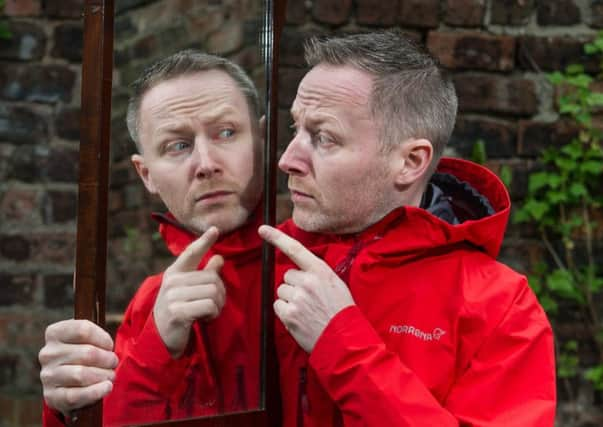Limmy too Glaswegian for UK? They’re missing out – Laura Waddell


Back when internet creaked to life by dial-up connection, my friends clustered around a big boxy computer one afternoon, messing around on limmy.com instead of going to maths. We’d heard about it through word of mouth. Its surreal flash videos and non-sequitur humour were the sort of weird fun websites the era did best: chanced-upon homemade eccentricities, passion projects and offbeat digital experimentation before streamlined timelines and semi-professionalised self-promotion came hand-in-hand with any digital presence. Especially for weirdos, goths and nerds, of which my friends and I were all three, finding something you clicked with was a portal to subcultural joys.
As a rag-tag group we composed an email to Limmy, inviting him to Coatbridge for a drink. Being underage was rarely a barrier to service. Politely, he emailed back saying something along the lines of that he’d let us know if he’d ever be in town. We were thrilled at getting any response.
Advertisement
Hide AdAdvertisement
Hide AdI realise now, from autobiography Surprisingly Down to Earth and Very Funny, a book easy to rattle through, this must have coincided with the period of alcoholism described with typical frankness alongside mental health problems making work life difficult.
There’s an authentic warmth in the description of meditation used to stem anxiety, talking the reader into having a go while knowing they might be sceptical. It’s also a great guide for any tentative sketch-writers needing encouragement or a peek into the origins of Dee Dee.
Coming from a slightly off-kilter angle is at the heart of Limmy’s comedy, fixated on everyday strangeness and character oddities. He describes seeking a few people absolutely doubled over with laughter over a sea of mild chuckles from a mainstream audience.
That outsider feeling many artists, comedians and writers share can make imposter syndrome very raw, even if it is more endearing than the sometimes aggressive entitlement of newcomers emerging with social media.
But being an outsider doesn’t only come from within. He acknowledges, but clearly doesn’t want to wallow in, a “rough” Carnwadrick upbringing, leading to later feeling like a “ned” in professional situations. Mirroring recent comments by James Kelman about Scottish writers being “marginalised”, Limmy describes facing UK-wide programmers who considered his popular sketches and accent too localised, and comic collaborators only after the novelty of a gruff Glaswegian accent.
They don’t know the laugh they’re missing.